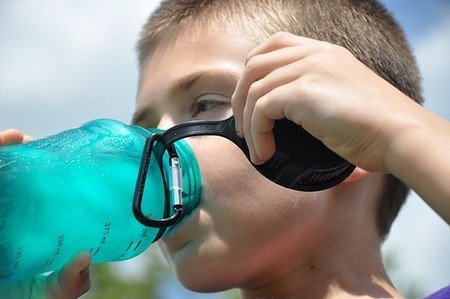Your kid throwing up alarms you and more often, you look for medicine in the chest or take him to the doctor. However, it is important to know all about the effects and reasons for nausea or vomiting. This information can save you from a panic situation.
Nausea could have many causes like motion sickness, illness, stress, or indigestion. Mostly, gastroenteritis is the cause of vomiting, an infection of the digestive tract. Common stomach flu or gastroenteritis is often the cause of nausea, vomiting, and even diarrhea. This infection does not last long but disturbs the kid’s life in general.

Nausea is the looming feeling of throwing up, accompanied by the increased heart rate and heavy breathing. Then vomiting follows and causes dehydration in acute conditions when more body fluid is lost. Rehydrating the body becomes important to save the child from its ill effects. Administer small doses of liquid and take him to a doctor.
Your kid needs Doctor when you observe these
- Frequent vomiting
- Vomits hard by the wrenching body
- Cannot retain more than one spoon of milk even
- When you notice brown, red, or green fluid or blood in vomit or stools
- Visibly drained and sluggish
- Having a high fever
- Diarrhea more than one per day
Signs of Dehydration
Notice these and take urgent action by having your child in a doctor‘s care
- Dry mouth
- Kid crying without any drop of tear
- Diapers are hardly wet
- Darker urine
- A sunken tender area on the head
Rehydration- ways to do it
Rehydration is a very important remedial action that the parents can apply to keep baby hydrated.
For Babies below one year:
- Plain water is not advisable as it can offset nutrients’ equilibrium in the baby’s blood, however, you should only administer water when your doctor advises so.
- If your baby below 2 months vomits out practically all the feed frequently, he may need a doctor’s attention. The breastfeeding should be curtailed for a shorter period to breast-fed babies in similar cases until their problem sorted. Watch for a few hours before you start following the normal routine.
- Offer 2 tsp of unflavored oral electrolyte, but if baby rejects that, you can try flavored electrolyte as per doctor’s advice or just try adding a spoon of juice in it.

Kids above one year or more:
- Avoid milk products till vomiting stops completely, instead give clear fluid.
- You may be wondering what are the clear fluids, here are a few to choose from.
- A sip of cool water or chips of ice
- Oral electrolyte solution (frozen or in liquid form), flavored by juices of orange, grapes, pear or grapes or over the counter products, suggested by the doctor.
- Broth or clear soup
- Gelatin or jelly desserts
Post- recovery
When you find your child is not vomiting now for more than 8 hours, feed him some solid food. Give him toast, mashed potatoes, soup, or some crackers. When 24 hours pass away without your child having any vomit or nausea, you can get back to the normal diet.
Related Post:
Vital Facts About Nausea Causes and Symptoms
References:
https://kidshealth.org/
https://www.webmd.com/




